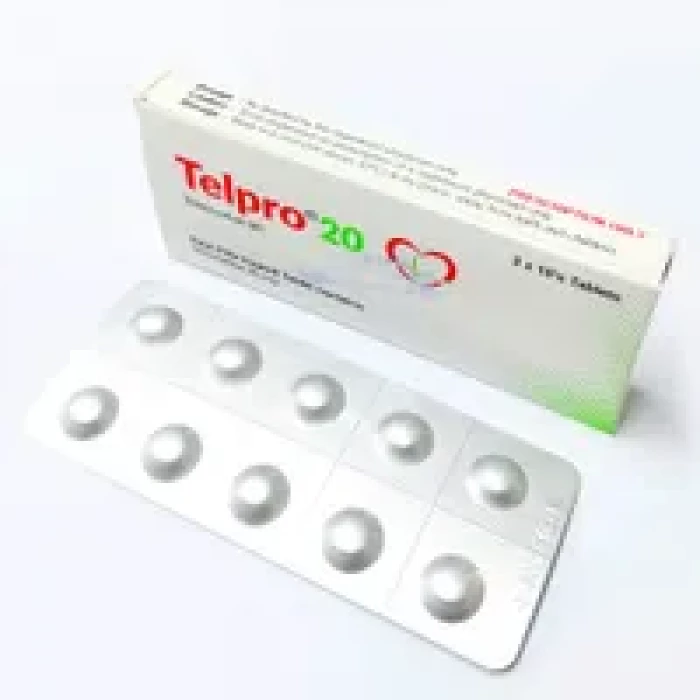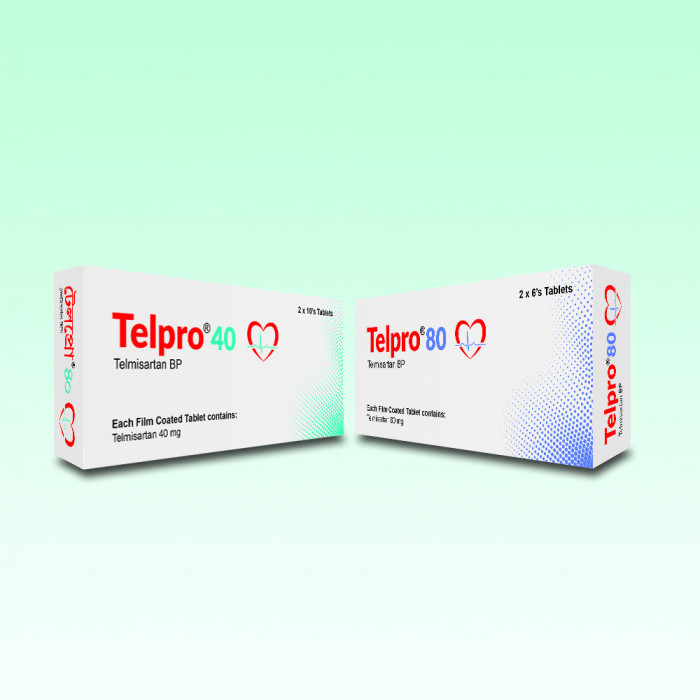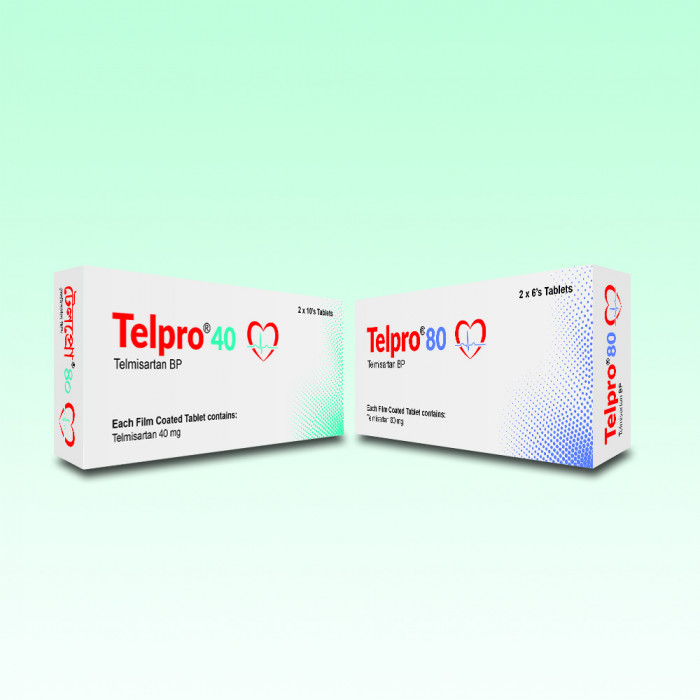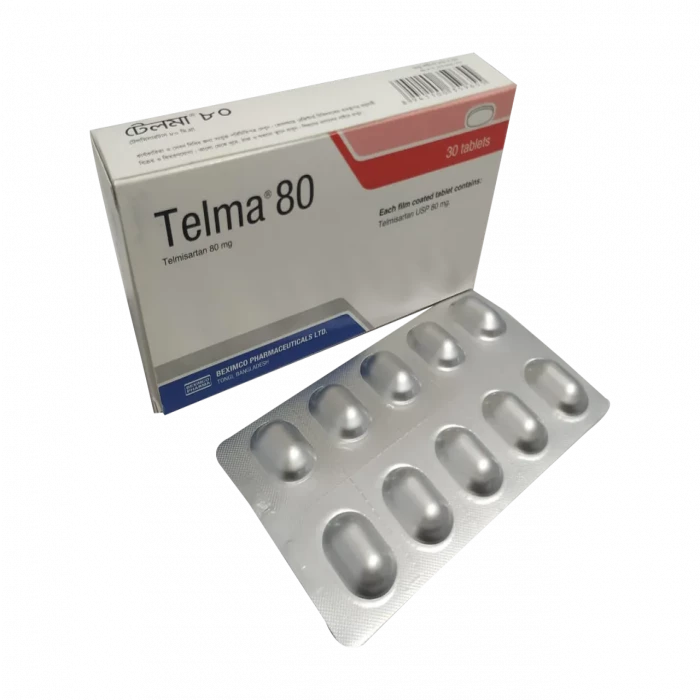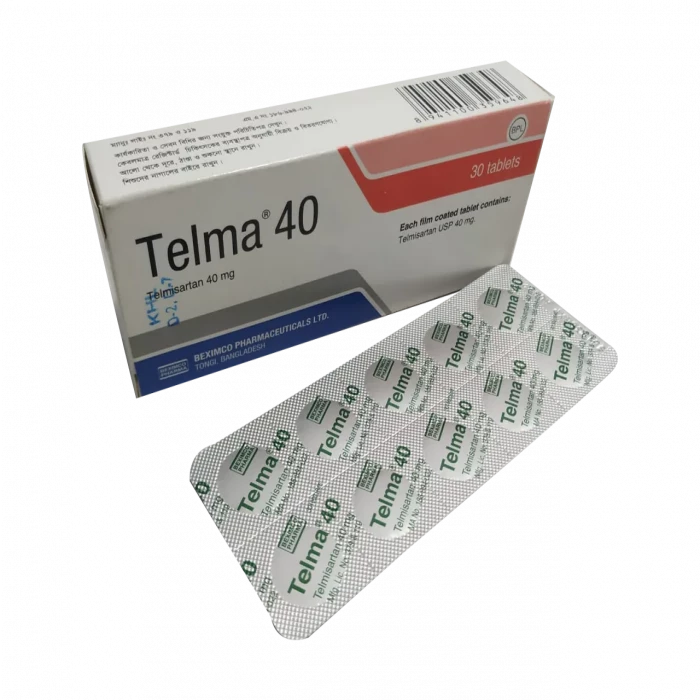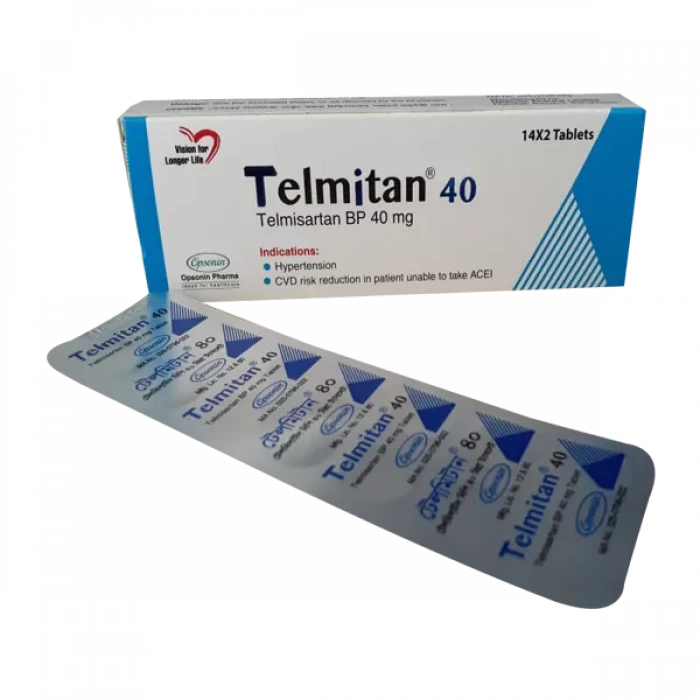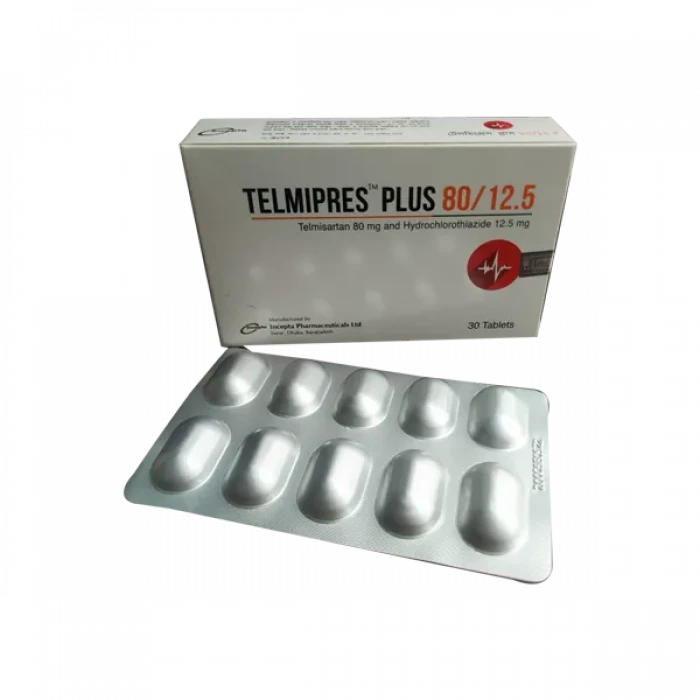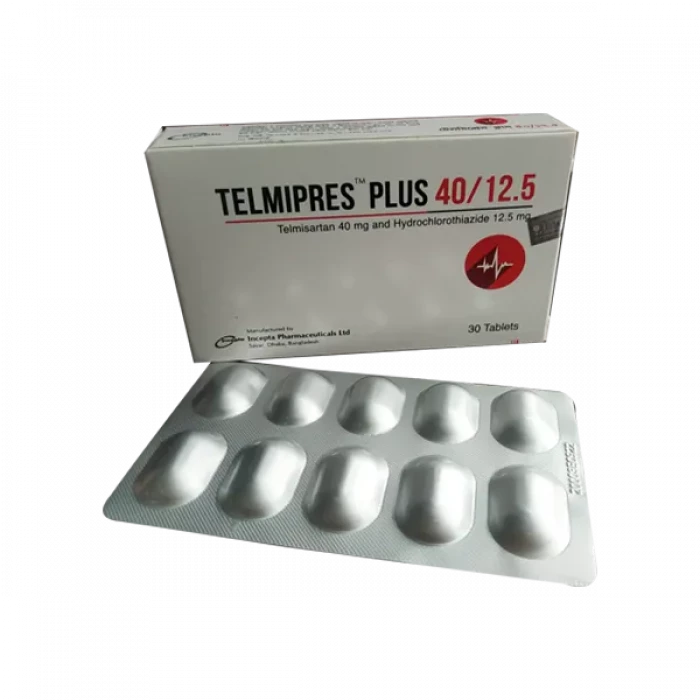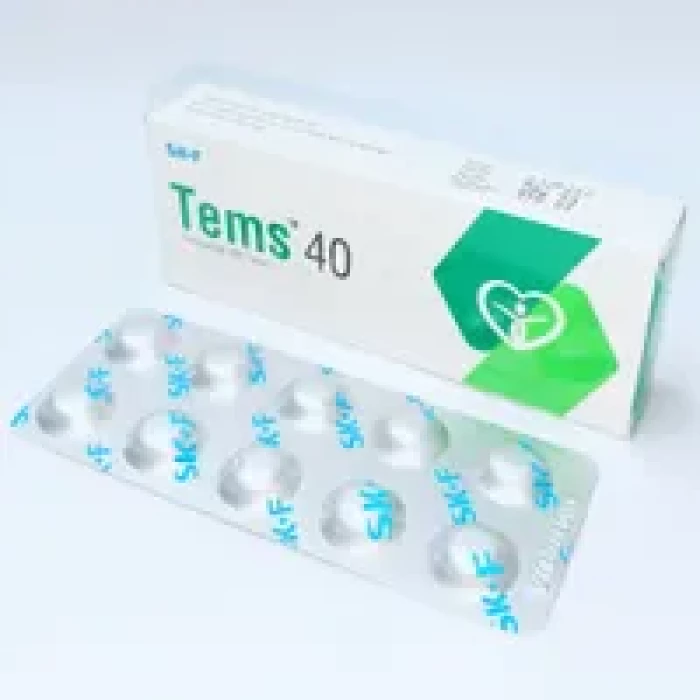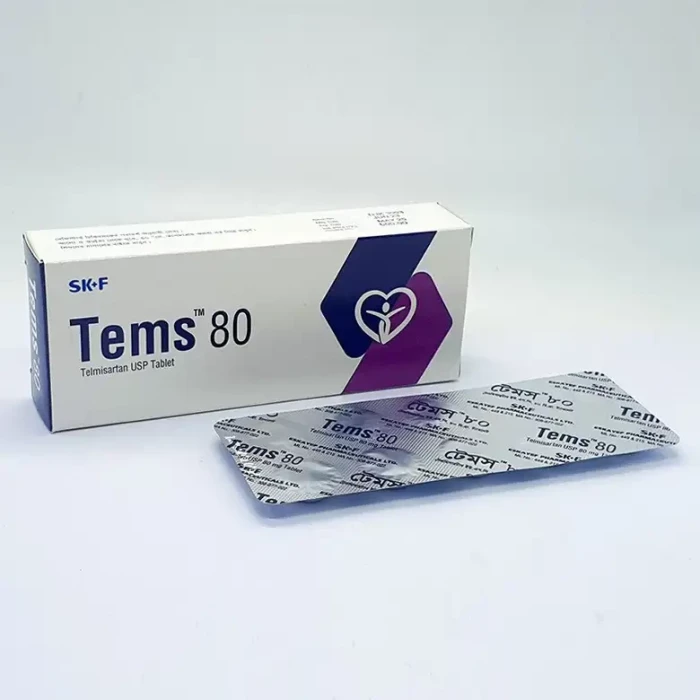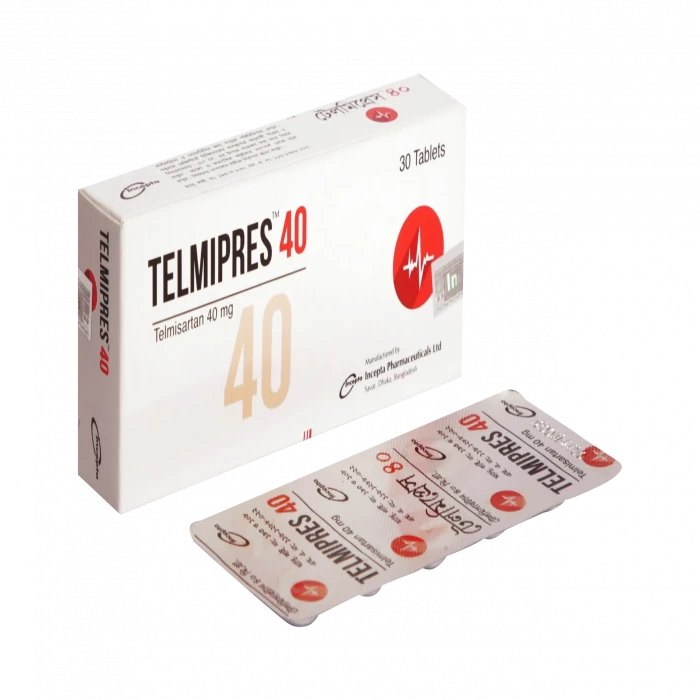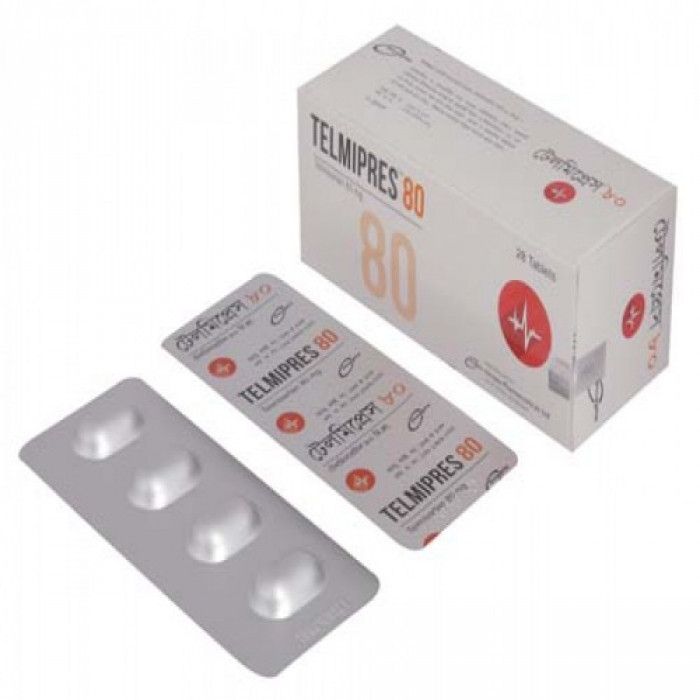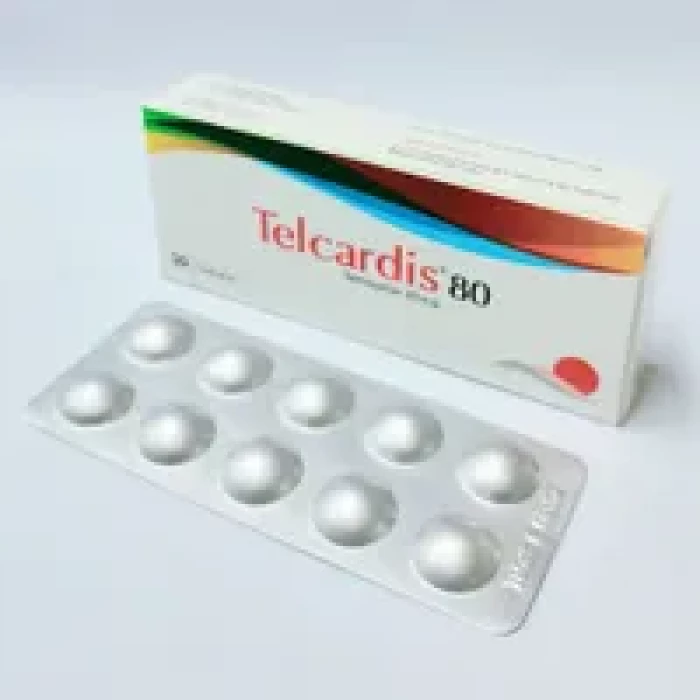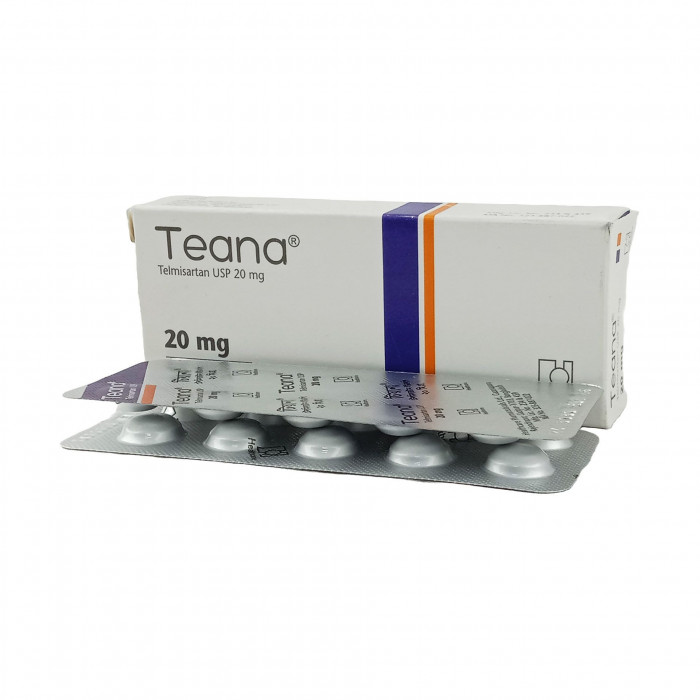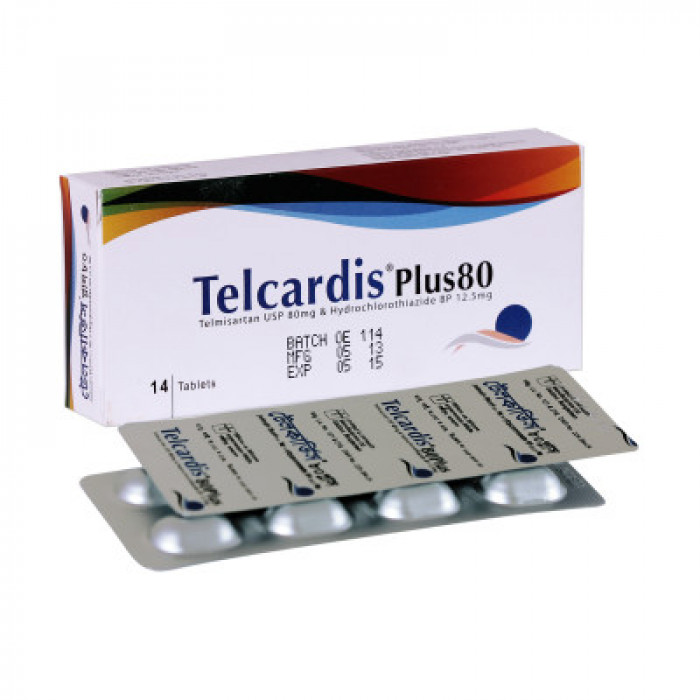
✔ 100% Authentic Product
👁️ Currently Viewing 1430
Telcardis Plus 80mg (10pcs)
Generic Name: Telmisartan 80mg+ Hydrochlorothiazide 12.5mg
Manufacturer/Distributor: Unimed & Unihealth Manufacturers Ltd
Discount
Price: ৳ 190
MRP:
৳
200
5%
Off

100% Genuine Products, Guaranteed

Safe & Secure Payments, Always

Fast, Secure & Efficient Delivery

Proper Packaging
 Cash on Delivery - All over Bangladesh
Cash on Delivery - All over Bangladesh Regular Delivery - 12-24 Hours, Dhaka City* Charge Tk.39-59
Regular Delivery - 12-24 Hours, Dhaka City* Charge Tk.39-59 Regular Delivery - 24-48 Hours, Other Cities* Charge Tk.99-110
Regular Delivery - 24-48 Hours, Other Cities* Charge Tk.99-110
 ফ্রি ডেলিভারিঃ - ৯৯৯ টাকা+ অর্ডারে, ঢাকা
শহরে
ফ্রি ডেলিভারিঃ - ৯৯৯ টাকা+ অর্ডারে, ঢাকা
শহরে ফ্রি ডেলিভারিঃ - ২৯৯৯ টাকা+ অর্ডারে, ঢাকার
বাহিরে
ফ্রি ডেলিভারিঃ - ২৯৯৯ টাকা+ অর্ডারে, ঢাকার
বাহিরে
100% Genuine Products, Guaranteed
Safe & Secure Payments, Always
Fast, Secure & Efficient Delivery
Proper Packaging
 Cash on Delivery - All over Bangladesh
Cash on Delivery - All over Bangladesh Regular Delivery - 12-24 Hours, Dhaka City* Charge Tk.39-59
Regular Delivery - 12-24 Hours, Dhaka City* Charge Tk.39-59 Regular Delivery - 24-48 Hours, Other Cities* Charge Tk.99-110
Regular Delivery - 24-48 Hours, Other Cities* Charge Tk.99-110 ফ্রি ডেলিভারিঃ - ৯৯৯ টাকা+ অর্ডারে, ঢাকা
শহরে
ফ্রি ডেলিভারিঃ - ৯৯৯ টাকা+ অর্ডারে, ঢাকা
শহরে ফ্রি ডেলিভারিঃ - ২৯৯৯ টাকা+ অর্ডারে, ঢাকার
বাহিরে
ফ্রি ডেলিভারিঃ - ২৯৯৯ টাকা+ অর্ডারে, ঢাকার
বাহিরে
✅ Description:
Indications
To treat hypertension and lower blood pressure, telmisartan and hydrochlorothiazide are combined. The risk of both fatal and nonfatal cardiovascular events, such as strokes and heart attacks, is reduced by lowering blood pressure. These benefits have been demonstrated in controlled trials for antihypertensive drugs from a wide range of pharmacologic classes, including those to which this drug primarily belongs. There are no controlled studies demonstrating a risk reduction with telmisartan and hydrochlorothiazide.
Controlling high blood pressure should be a component of a comprehensive cardiovascular risk management plan that also includes, as needed, cholesterol management, diabetes management, antithrombotic treatment, quitting smoking, exercising, and limiting sodium intake. Many people will need to take multiple medications in order to achieve blood pressure goals. For comprehensive guidance on objectives and management, refer to published guidelines, such as those of the Joint National Committee on Prevention, Detection, Evaluation, and Treatment of High Blood Pressure of the National High Blood Pressure Education Program (JNC).
The reduction of cardiovascular morbidity and mortality has been demonstrated in randomized controlled trials with a variety of antihypertensive medications from different pharmacologic classes and with different mechanisms of action, and it can be deduced that blood pressure reduction, not some other pharmacologic property of the drugs, is largely responsible for those benefits. The most notable and consistent benefit for cardiovascular outcomes has been the reduction in the risk of stroke, but regular evidence has also shown regular reductions in myocardial infarction and cardiovascular mortality.
Even small reductions in severe hypertension can be helpful because elevated systolic or diastolic pressure increases the risk of cardiovascular disease, and the absolute risk increase per mmHg is higher at higher blood pressure. Patients who are at higher risk independently of their hypertension (for example, patients with diabetes or hyperlipidemia) would benefit from more aggressive treatment to a lower blood pressure goal because the absolute benefit of blood pressure reduction is similar across populations with varying absolute risks (for example, patients with diabetes or hyperlipidemia).
Some antihypertensive medications have lessened blood pressure effects (as monotherapy), and many antihypertensive medications have additional approved uses and effects in black people (e.g., on angina, heart failure, or diabetic kidney disease). These elements might affect the course of treatment.
It is not advised to use telmisartan and hydrochlorothiazide as first-line treatments for hypertension.
Two antihypertensive medications that can be used alone or in combination with other medications are telmisartan and hydrochlorothiazide.
Pharmacology
The angiotensin-converting enzyme catalyzes the conversion of angiotensin I into angiotensin II (ACE, kininase II). The primary pressor of the renin-angiotensin system, angiotensin II induces vasoconstriction, stimulates the synthesis and release of aldosterone, stimulates the heartbeat, and causes sodium absorption in the kidneys. Telmisartan prevents angiotensin II from binding to the AT1 receptor in a variety of tissues, including vascular smooth muscle and the adrenal gland, thereby inhibiting angiotensin II's vasoconstrictor and aldosterone-secreting effects. As a result, it has no impact on the pathways that produce angiotensin II.
Despite being found in a variety of organs, the AT2 receptor is not known to be connected to cardiovascular homeostasis. The AT1 receptor exhibits a >3,000-fold greater affinity for telmisartan than the AT2 receptor.
The angiotensin II receptor is blocked, which decreases the negative regulatory feedback of angiotensin II on renin secretion, but the increased plasma renin activity and angiotensin II circulating levels do not compensate for the blood pressure-lowering action of telmisartan.
Hydrochlorothiazide: This medication has the potential to be a thiazide diuretic. Thiazides affect the renal tubular processes involved in the reabsorption of electrolytes, specifically increasing the excretion of sodium salt and chloride in amounts that are roughly proportional. In a circular manner, hydrochlorothiazide's diuretic activity reduces plasma volume, which increases plasma renin activity, increases aldosterone release, increases urinary potassium misfortune, and decreases serum potassium. Angiotensin II interferes with the renin-aldosterone connection, so the coadministration of an ARB tends to reverse the potassium loss associated with these diuretics. Thiazides' ability to lower blood pressure isn't entirely understood in terms of their underlying mechanism.
Dosage & Administration
Start telmisartan monotherapy (80 mg) for a patient whose blood pressure cannot be sufficiently controlled with telmisartan and hydrochlorothiazide (80 mg/12.5 mg) once daily. If necessary, the dose can be increased after two to four weeks to a maximum of 160 mg/25 mg.
Introduce this medication to a patient whose blood pressure is not sufficiently controlled by 25 mg of hydrochlorothiazide once daily, or whose blood pressure is controlled but experiences hypokalemia with this regimen: 80 mg/12.5 mg of telmisartan and hydrochlorothiazide once daily. If necessary, the dose can be increased after two to four weeks to a maximum of 160 mg/25 mg.
Telmisartan and hydrochlorothiazide may be administered with other antihypertensive drugs.
Interaction
Lithium, kaliuretic diuretics, laxatives, corticosteroids, ACTH, amphotericin, carbenoxolone, penicillin G, salicylates, K-sparing diuretics, K supplements, K salt substitutes, hyperkalemic drugs, digitalis glycosides, antiarrhythmic agents, drugs that cause torsades de pointes, alcohol, barbiturates, narcotics, oral anti diva
Contraindications
Telmisartan and hydrochlorothiazide is contraindicated:
- In patients who are hypersensitive to any component of this product
- In patients with anuria.
- For co-administration with aliskiren in patients with diabetes
Side Effects
Back pain (3%), diarrhea (3%), urinary tract infection (1%), and upper respiratory infection (7%). Myalgia (3%), Fatigue (1%), Sinusitis (3%), Peripheral edema (1%), Chest Pain (1%), Hypertension (1%), Telmisartan (3%), Dyspepsia is present in 1% of the population. Dyspepsia is also present in 1% of the general population (1 percent ), Pharyngitis (1%), headache (1%), and lightheadedness (1%). One percent
Hydrochlorothiazide's side effects include anorexia, epigastric discomfort, hypotension, orthostatic hypotension, photosensitivity, and anaphylaxis. Stevens-Johnson syndrome, toxic epidermal necrolysis, anemia, confusion, erythema multiforme, and exfoliative dermatitis are all examples of this condition. Hyperuricemia, hypokalemia, hypomagnesemia, and/or dizziness
Pregnancy & Lactation
D is the pregnancy category. During the second and third trimesters of pregnancy, medications that act on the renin-angiotensin system impair fetal renal function and increase fetal and newborn morbidity and death. The oligohydramnios that result can cause fetal lung hypoplasia and skeletal abnormalities. Skull hypoplasia, anuria, hypotension, renal failure, and mortality are all possible newborn side effects. If you suspect you're pregnant, stop taking Telmisartan with hydrochlorothiazide as soon as possible.
Nursing Mothers: Telmisartan has been found in the milk of breastfeeding rats, however, it is unknown whether it is excreted in human milk. Human milk contains thiazides. Because of the risk of bad effects on the nursing infant, consider whether to stop breastfeeding or stop taking the drug, keeping in mind the drug's importance to the mother.
Precautions & Warnings
Hepatic insufficiency, biliary blockage, renal impairment, and renal artery stenosis are all symptoms of hepatic insufficiency. Before starting treatment, be sure you haven't depleted your volume. Serum potassium levels should be checked on a frequent basis, especially in elderly and renally impaired individuals.
Storage Conditions
Keep at a temperature of 25° C. The tablets should not be taken out of the blisters until just before administration.
⚠️Disclaimer:
At ePharma, we’re committed to providing accurate and accessible health information. However, all content is intended for informational purposes only and should not replace medical advice from a qualified physician. Please consult your healthcare provider for personalized guidance. We aim to support, not substitute, the doctor-patient relationship.




